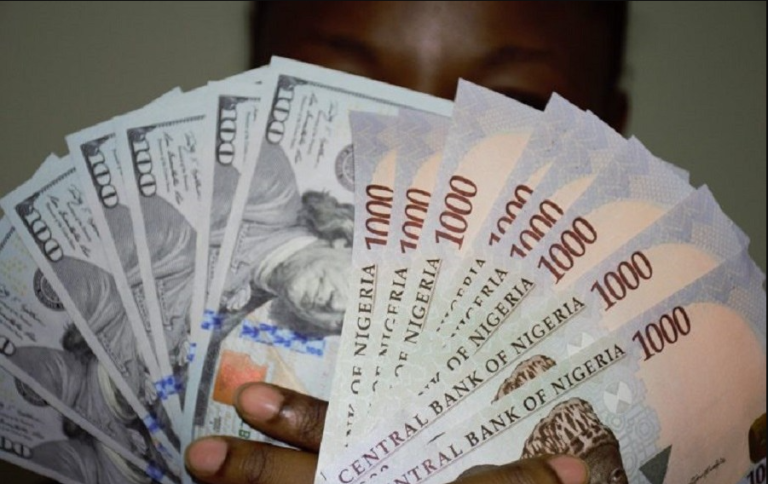The Naira witnessed a notable surge on Thursday, reaching a high of N1750 per dollar in the parallel market, commonly known as the black market.
This surge represents a substantial 7.43% increase, with the currency strengthening by N130.00 compared to the previous day’s closing rate of N1,880.
The surge coincides with Nigeria’s intensified efforts to counter the ongoing depreciation of the Naira.
In response to the currency’s decline, Nigeria has ramped up measures to stabilize its value. These efforts include cracking down on informal foreign currency street traders and targeting a popular cryptocurrency trading platform.
Throughout the week, the naira experienced a significant decline in value, hitting a low of N1,880 to the dollar on Thursday.
This depreciation has widened the disparity between the unofficial market rate and the official rate of the naira, presenting challenges to the government’s goal of unifying the two rates.
Despite the Central Bank of Nigeria’s implementation of various policies aimed at boosting the supply of foreign exchange (forex), these developments persist, underscoring the complexities of managing currency stability in the face of economic challenges.
- However, the Great British Pound (GBP) remained flat at £1/N2260, same as was recorded the previous day.
- Additionally, the Naira against the Euro traded flat, closing at N1960/EUR1 compared to N1960/EUR1 also reported the previous day.
In the cryptocurrency market where forex is sold using stablecoins, the Naira also settled at N1,708.40/$1 as of 1.15 pm.
Nairametrics reported that the National Security Adviser’s Office, led by Nuhu Ribadu, in collaboration with the Central Bank of Nigeria (CBN), has initiated a joint effort to combat forex speculation and tackle the issues affecting the country’s economic stability.
In a statement on Tuesday, a spokesperson for Ribadu’s office, Zakari Mijinyawa, the partnership is set to include coordinated actions with leading law enforcement agencies such as the Nigeria Police Force (NPF), the Economic and Financial Crimes Commission (EFCC), the Nigeria Customs Service (NCS), and the Nigeria Financial Intelligence Unit (NFIU).
Mijinyawa pointed out that the activities of speculators, operating both domestically and internationally through different mechanisms, have played a significant role in the naira’s depreciation, thereby exacerbating inflation and leading to economic instability in Nigeria.

